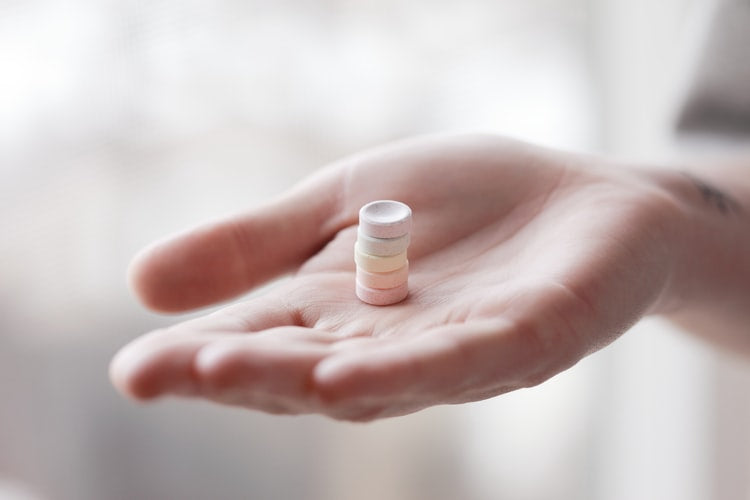
Toujeo Insulin Pen: Early Hypoglycemic Treatment Benefits
Share
Early Hypoglycemic Treatment with Toujeo Insulin Pen
One of the most effective treatments for diabetes is early hypoglycemic intervention. Managing blood sugar levels early with the Toujeo insulin pen can significantly benefit diabetic patients throughout their lives by reducing complications.
1. Early Hypoglycemic Treatment
Prolonged high blood sugar can lead to diabetes-related complications, even if blood sugar levels are eventually reduced. This phenomenon, known as the "metabolic memory effect," suggests that early blood sugar control has lasting benefits.
Evidence 1: The UK Prospective Diabetes Study (UKPDS)
The UKPDS and its 10-year follow-up demonstrated that strict blood sugar control reduces chronic complications in type 2 diabetes. Patients in the intensive treatment group experienced lower rates of microvascular and macrovascular complications compared to the conventional treatment group.
During the follow-up, even when blood sugar differences between the groups vanished, those who received early intensive treatment continued to show reduced risks of complications. This long-term benefit highlights the importance of early intervention.
Evidence 2: The Diabetes Control and Complications Trial (DCCT)
The DCCT compared intensive insulin therapy with conventional treatment in type 1 diabetes patients. Results showed that early intensive treatment reduced microvascular complications. The follow-up Epidemiology of Diabetes Interventions and Complications (EDIC) study confirmed lower rates of both microvascular and macrovascular events in the intensive treatment group, despite similar glycosylated hemoglobin levels later on.
Early Treatment Considerations
Even with similar blood sugar levels post-treatment, patients who start treatment early experience fewer complications. This "metabolic memory effect" underscores the need for early diagnosis and intervention. Once diabetes is diagnosed, immediate lifestyle and medication changes are crucial.
Sustained Benefits of Early Intensive Treatment
Early intensive treatment, including the use of insulin and oral hypoglycemic drugs, can help patients reach their blood sugar targets quickly. This approach offers long-term cardiovascular protection and improves outcomes.
Beta Cell Function Improvement
Short-term intensive hypoglycemic treatment in newly diagnosed type 2 diabetes patients can restore and improve pancreatic beta cell function. Studies indicate that beta cells in such patients often retain about 50% functionality, and early treatment can help recover this function.
Consensus and Recommendations
According to the "Newly Diagnosed Short-term Insulin Intensification Consensus" in China, newly diagnosed type 2 diabetes patients with high glycosylated hemoglobin or fasting blood glucose should undergo short-term intensive insulin therapy. This approach is particularly beneficial for newly diagnosed patients who are in relatively good physical condition and have a long life expectancy.
Exceptions to Intensive Treatment
Elderly patients over 60, those with multiple comorbidities, or those in poor physical condition may not benefit as much from intensive treatment. Similarly, obese patients may require different treatment strategies.
Using the Toujeo insulin pen as part of an early hypoglycemic treatment plan can help achieve these benefits, ensuring better long-term management of diabetes and reduced complications.
One of the most effective treatments for diabetes is early hypoglycemic intervention. Managing blood sugar levels early with the Toujeo insulin pen can significantly benefit diabetic patients throughout their lives by reducing complications.
1. Early Hypoglycemic Treatment
Prolonged high blood sugar can lead to diabetes-related complications, even if blood sugar levels are eventually reduced. This phenomenon, known as the "metabolic memory effect," suggests that early blood sugar control has lasting benefits.
Evidence 1: The UK Prospective Diabetes Study (UKPDS)
The UKPDS and its 10-year follow-up demonstrated that strict blood sugar control reduces chronic complications in type 2 diabetes. Patients in the intensive treatment group experienced lower rates of microvascular and macrovascular complications compared to the conventional treatment group.
During the follow-up, even when blood sugar differences between the groups vanished, those who received early intensive treatment continued to show reduced risks of complications. This long-term benefit highlights the importance of early intervention.
Evidence 2: The Diabetes Control and Complications Trial (DCCT)
The DCCT compared intensive insulin therapy with conventional treatment in type 1 diabetes patients. Results showed that early intensive treatment reduced microvascular complications. The follow-up Epidemiology of Diabetes Interventions and Complications (EDIC) study confirmed lower rates of both microvascular and macrovascular events in the intensive treatment group, despite similar glycosylated hemoglobin levels later on.
Early Treatment Considerations
Even with similar blood sugar levels post-treatment, patients who start treatment early experience fewer complications. This "metabolic memory effect" underscores the need for early diagnosis and intervention. Once diabetes is diagnosed, immediate lifestyle and medication changes are crucial.
Sustained Benefits of Early Intensive Treatment
Early intensive treatment, including the use of insulin and oral hypoglycemic drugs, can help patients reach their blood sugar targets quickly. This approach offers long-term cardiovascular protection and improves outcomes.
Beta Cell Function Improvement
Short-term intensive hypoglycemic treatment in newly diagnosed type 2 diabetes patients can restore and improve pancreatic beta cell function. Studies indicate that beta cells in such patients often retain about 50% functionality, and early treatment can help recover this function.
Consensus and Recommendations
According to the "Newly Diagnosed Short-term Insulin Intensification Consensus" in China, newly diagnosed type 2 diabetes patients with high glycosylated hemoglobin or fasting blood glucose should undergo short-term intensive insulin therapy. This approach is particularly beneficial for newly diagnosed patients who are in relatively good physical condition and have a long life expectancy.
Exceptions to Intensive Treatment
Elderly patients over 60, those with multiple comorbidities, or those in poor physical condition may not benefit as much from intensive treatment. Similarly, obese patients may require different treatment strategies.
Using the Toujeo insulin pen as part of an early hypoglycemic treatment plan can help achieve these benefits, ensuring better long-term management of diabetes and reduced complications.
